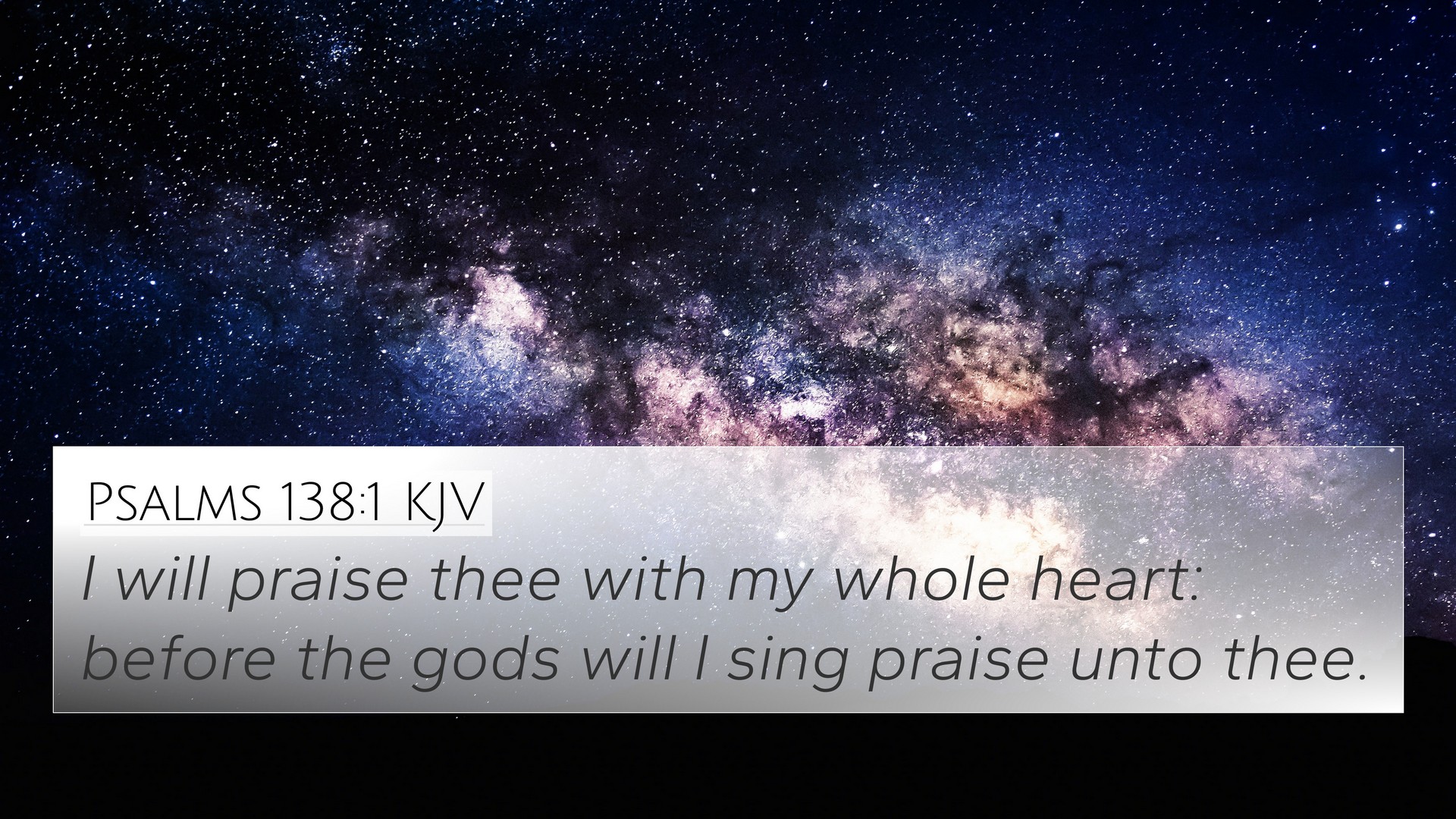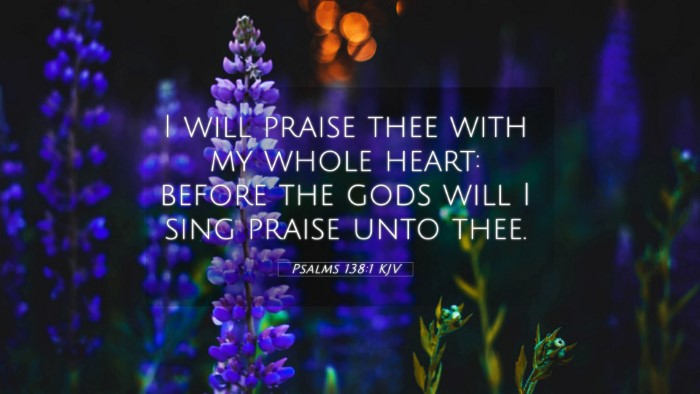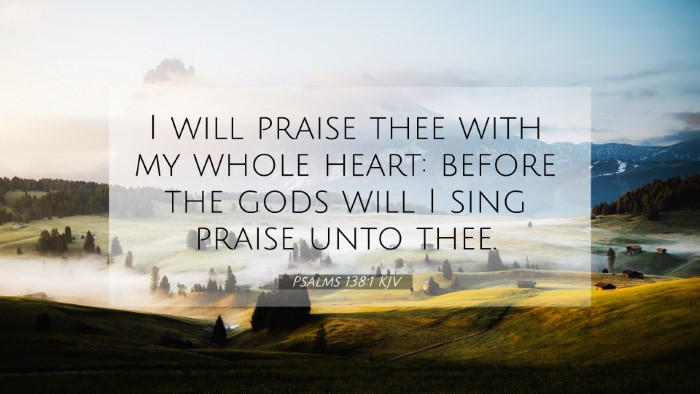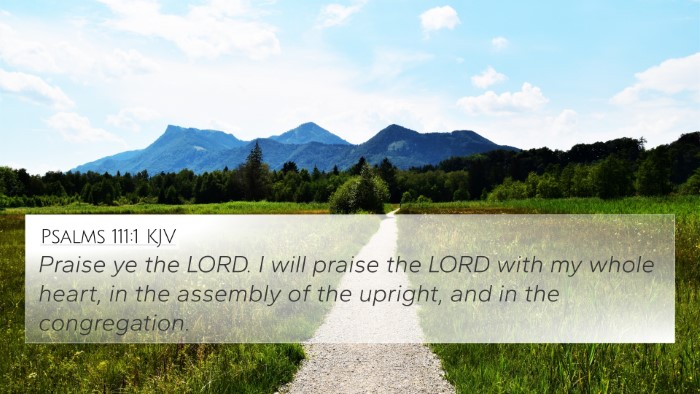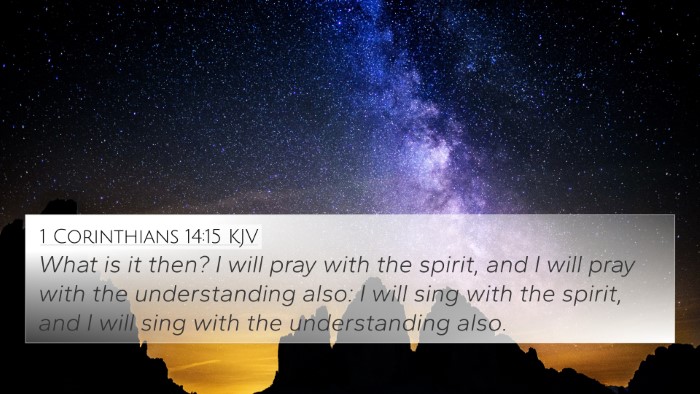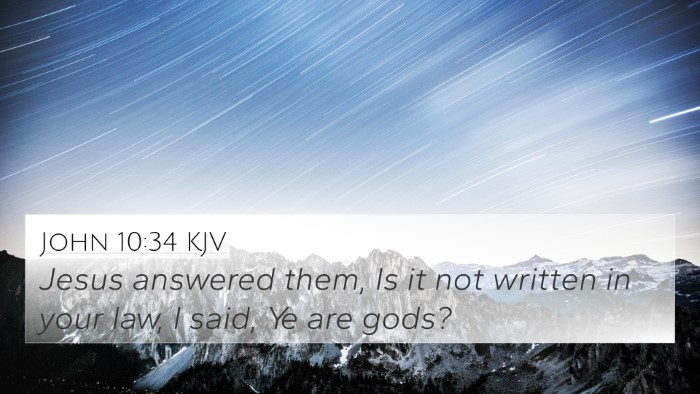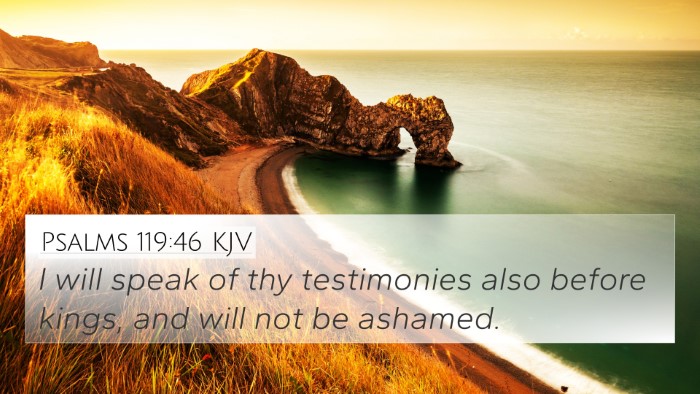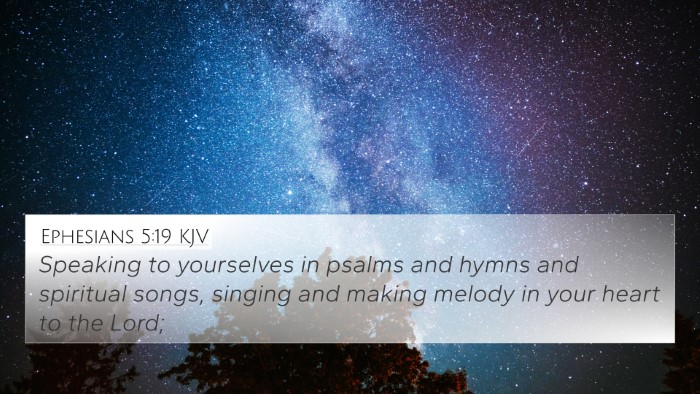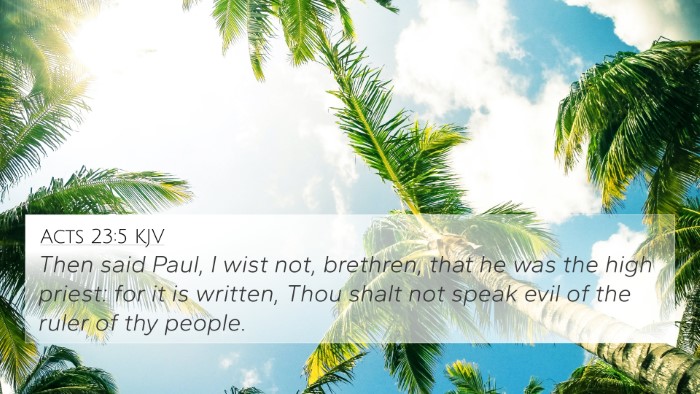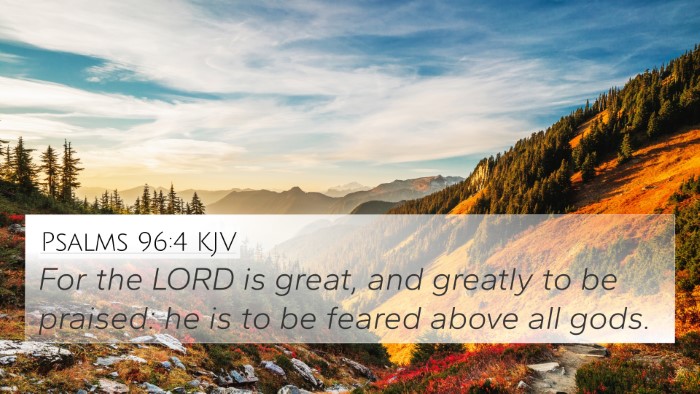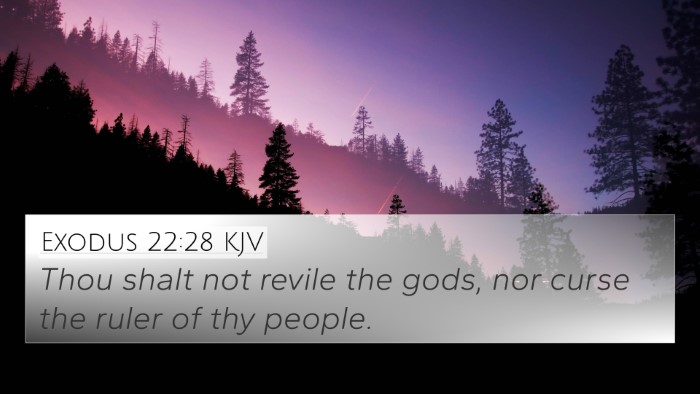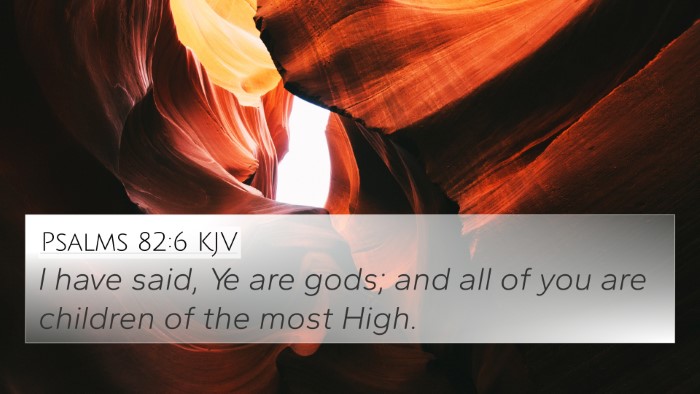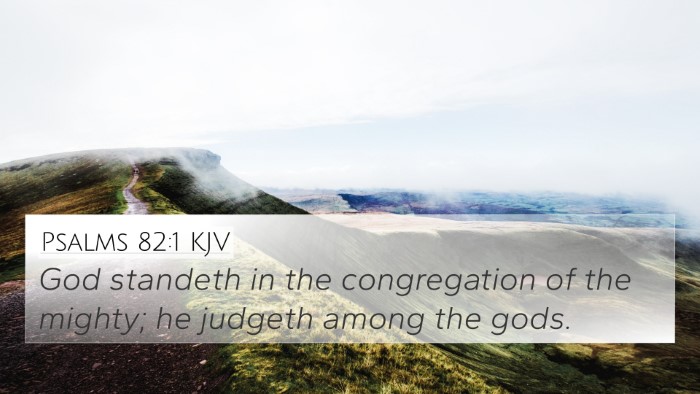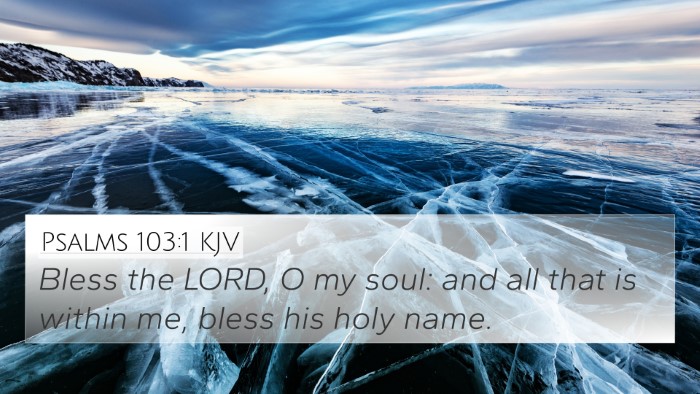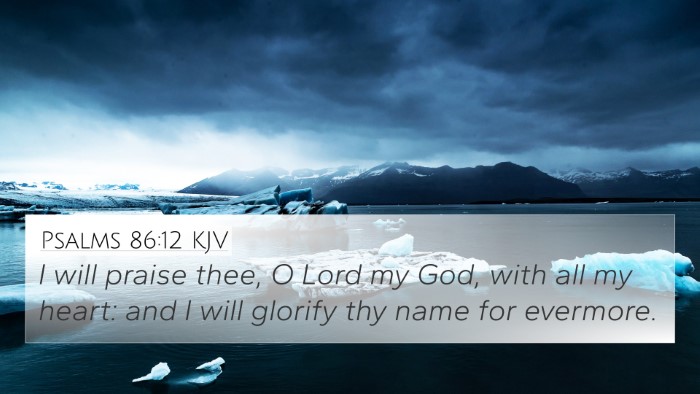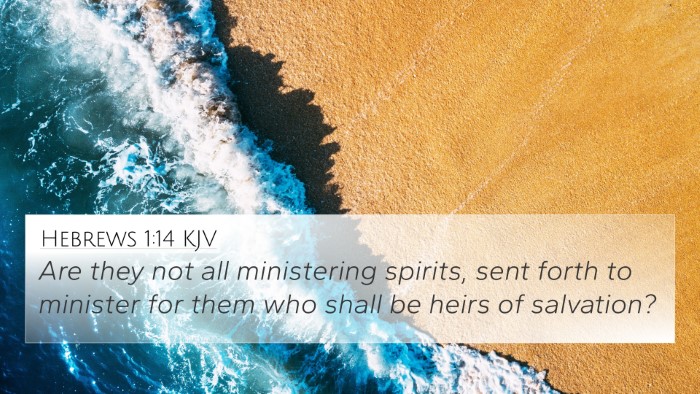Psalms 138:1 - Summary and Interpretation
Bible Verse: "I will praise thee with my whole heart: before the gods will I sing praise unto thee."
This verse from Psalms reflects a deep commitment to worship and praise directed toward God, emphasizing the importance of heartfelt devotion.
Meaning and Insights
The verse is rich in meaning, as elucidated by various public domain commentaries:
- Matthew Henry: He notes that the psalmist expresses his praise "with my whole heart," signifying total dedication to God. This implies sincerity in worship rather than mere lip service.
- Albert Barnes: Barnes emphasizes that the psalmist’s praise occurs "before the gods," possibly referring to false idols or rulers. This illustrates the psalmist's boldness in proclaiming God's supremacy in the presence of lesser powers.
- Adam Clarke: Clarke highlights the communal aspect of praise, suggesting that the act of singing before both divine and earthly authorities serves as a testament to God's glory.
Thematic Bible Verse Connections
Psalms 138:1 can be linked thematically with various other scriptures, which reinforces its message. Below are notable connections:
- Psalms 95:1-2: The call to come before God with songs of praise resonates with the same theme of heartfelt worship.
- Psalms 30:12: "To the end that my glory may sing praise to thee, and not be silent." This supports the idea of unrestrained praise.
- Philippians 4:6-7: The encouragement to present our requests to God with Thanksgiving parallels the unified heart in praising God.
- Romans 12:1: Offering ourselves as living sacrifices connects to the notion of entirety in devotion to God.
- 1 Chronicles 16:23-25: A call to sing unto the Lord underscores communal worship similar to the psalmist's freedom to sing before the "gods."
- 1 Thessalonians 5:16-18: Rejoicing always and giving thanks reflects the principle of continuous praise found in Psalms 138:1.
- Matthew 4:10: "Thou shalt worship the Lord thy God, and Him only shalt thou serve." This affirms the commitment outlined in Psalms 138:1 in the face of various powers.
Cross-Referencing Biblical Texts
The underpinning of Psalms 138:1 can be understood through cross-references with other scriptures. These connections reveal insights about worship and the nature of God that deepen our understanding:
- Hebrews 13:15: Offering a sacrifice of praise ties into the concept of worship signified in this psalm.
- Revelation 15:4: A declaration of God's holiness and praise occurs in the context of eternal worship.
- Isaiah 12:4-5: This passage echoes the joy and praise toward God among the nations, signifying a universal call to worship.
Tools for Bible Cross-Referencing
The following tools can enhance your study of cross-references in relation to Psalms 138:1:
- Bible concordance for locating related verses.
- Bible cross-reference guide to navigate scripture connections.
- Cross-reference Bible study materials to deepen understanding.
- Comprehensive Bible cross-reference systems for systematic study.
User Intent Keywords Addressed
This exploration of Psalms 138:1 responds to various user intents such as:
- What verses are related to Psalms 138:1?
- How do Psalms 138:1 and Philippians 4:6 connect?
- Similarities between Psalms 138:1 and Romans 12:1.
- Bible verses that support the message of total devotion in Psalms 138:1.
Conclusion
Psalms 138:1 encapsulates a powerful theme of unwavering praise and worship, firmly grounded in a relationship with God that transcends earthly powers. By engaging with related scriptures, one can draw a clearer picture of the scope and depth of divine devotion.
Through cross-referencing and thematic studies, we see how this verse stands not alone, but in dialogue with the entire narrative of Scripture, providing a holistic understanding of worship in both personal and communal contexts.
